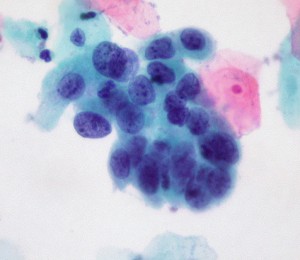December 9th, 2011 by Elaine Schattner, M.D. in Opinion, True Stories
1 Comment »

Over the weekend I developed another bout of diverticulitis. Did the usual: fluids, antibiotics, rest, avoided going to the ER, cancelled travel plans.
One of my doctors asked a very simple question: is this happening more frequently? The answer, we both knew, was yes. But I don’t have a Personal Health Record (PHR) that in principle, through a few clicks, would give a time-frame graph of the bouts and severity of the episodes over the past several years.
The last time this happened, and the time before that, I thought I’d finally start a PHR. Like most compulsive patients, I keep records about my health. In the folder in my closet in a cheap old-fashioned filing box, the kind with a handled top that flips open, I’ve got an EKG from 15 years ago, an Read more »
*This blog post was originally published at Medical Lessons*
December 3rd, 2011 by Elaine Schattner, M.D. in Opinion, Research
No Comments »

The latest issue of the Annals of Internal Medicine contains 2 noteworthy papers on cervical cancer screening. The first, a systematic review of studies commissioned by the USPSTF, looked at 3 methods for evaluating abnormalities in women over 30 years:

high-grade cervical cell dysplasia (Dr. E. Uthman, Wikimedia Commons)
1. Conventional cytology (as in a Pap smear; the cervix is scraped and cells splayed onto a microscope slide for examination);
2. Liquid-based cytology (for LBC, the NHS explains: the sample is taken as for a Pap test, but the tip of the collection spatula is inserted into fluid rather than applied to slides. The fluid is sent to the path lab for analysis);
3. Testing for high-risk HPV (human papillomavirus). Currently 3 tests have been approved by the FDA in women with atypical cervical cells or for cervical cancer risk assessment in women over the age of 30: Digene Hybrid Capture 2 (manufactured by Quiagen), Cobas 4800 HPV (Roche) and Cervista HR HPV (Hologic); another Roche Diagnostics assay, Amplicor HPV, awaits approval.
These HPV assays use distinct methods to assess DNA of various HPV strains.
There’s a lot of jargon here, and I have to admit some of this was new to me despite my nearly-due diligence as a patient at the gynecologist’s office and my familiarity as an oncologist with the staging, clinical manifestations and treatment of cervical cancer. Who knew so many decisions were made during a routine pelvic exam about which manner of screening? Read more »
*This blog post was originally published at Medical Lessons*
October 16th, 2011 by Elaine Schattner, M.D. in Research
No Comments »


Ductal Carcinoma in Situ (DCIS) in the breast, histopathology w/ hematoxylin & eosin stain, Wiki-Commons image
More, a magazine “for women of style & substance,” has an unusually thorough, now-available article by Nancy F. Smith in its September issue on A Breast Cancer You May Not Need to Treat.
The article’s subject is DCIS (Ductal Carcinoma in Situ). This non-invasive, “Stage 0” malignancy of the breast has shot up in reported incidence over the past two decades. It’s one of the so-called slow-growing tumors detected by mammography; a woman can have DCIS without a mass or invasive breast cancer.
While some people with this diagnosis choose to have surgery, radiation or hormonal treatments, others opt for a watchful waiting strategy. The article quotes several physicians, including oncologists, who consider Read more »
*This blog post was originally published at Medical Lessons*
October 6th, 2011 by Elaine Schattner, M.D. in Opinion
No Comments »

Monday’s New Yorker has a story, Personal Best, by Atul Gawande. It’s about coaching, and the seemingly novel idea that doctors might engage coaches – individuals with relevant expertise and experience — to help them improve their usual work, i.e. how they practice medicine.
Dr. Gawande is a surgeon, now of eight years according to his article. His specialty is endocrine surgery – when he operates it’s most often on problematic glands like the thyroid, parathyroid or appendix. Results, and complications, are tracked. For a while after he completed his training he got better and better, in comparison to nation stats, by his accounting. And then things leveled off.
The surgeon-writer considered how coaches can help individuals get better at whatever they do, like playing a sport or singing. He writes:
The coaching model is different from the traditional conception of pedagogy, where there’s a presumption that, after a certain point, the student no longer needs instruction. You graduate. You’re done. You can go the rest of the way yourself…
He wonders about how this might apply in medicine: Read more »
*This blog post was originally published at Medical Lessons*
September 22nd, 2011 by Elaine Schattner, M.D. in Opinion
2 Comments »

Last week I wrote a simple post on eating yogurt with fresh fruit for lunch. It wasn’t until later that I realized why it’s a medical lesson.
It happens that yesterday morning I was up and out early. I saw a former colleague walking along the street. He’d gained weight, and walked slowly. I thought about how hard he works, and what a good doctor I know him to be. And yet any citizen or patient might size him up as heavy, maybe even unhealthy.
The problem is not that he’s uneducated or can’t afford nutritious foods. He knows fully about the health benefits of losing weight and exercise. The problem is the stress and long hours of a busy, conscientious physician’s lifestyle.
When I worked as a practicing doctor and researcher at the hospital, I rarely ate a nutritious breakfast or lunch. My morning meal, too often, consisted of Read more »
*This blog post was originally published at Medical Lessons*













